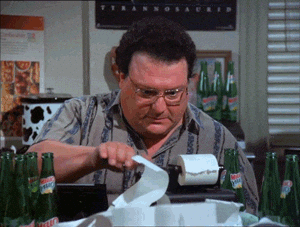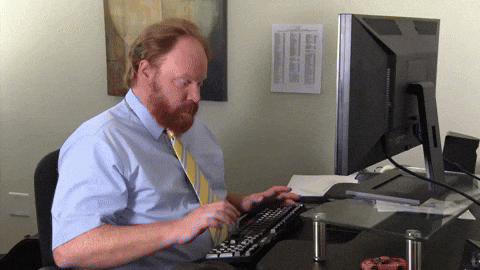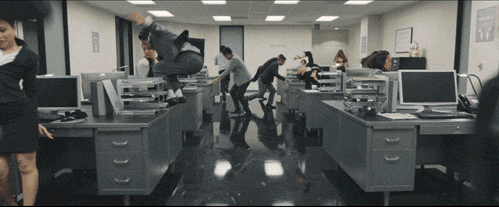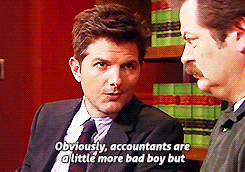Like me, the only thing you might know about certified public accountants, or CPAs, comes from that one line in Bowling for Soup’s “1985”; “One Prozac a day, husband’s a CPA.” When you think of a CPA what comes to mind? Perhaps a person walking around in a suit and tie, carrying a briefcase while typing away on a calculator? Or maybe a woman with a tight bun behind a desk calculating numbers you couldn’t possibly comprehend. Even if these thoughts occupy your mind, taking up the role of a CPA not only has a lot of benefits, but also holds great value through practical life experiences.
Pick up your calculators and start balancing your checkbooks; we’ve got everything you need to know about pursuing a career as a CPA.
What does a professional CPA do?

As a CPA, you will join either the public or the private sector and become a business’s financial advisor. You will take charge of a business’s financial reigns and help make sure their goals get met, their expenses and revenues match and their taxes add up. Becoming a CPA comes with a fair amount of hard work and certification, but the rewards and experience make it worth it in the end.
In the public sector, four professional service networks reign supreme—Ernest & Young, Deloitte & Touche, KPMG and PricewaterhouseCoopers. These Big Four accounting firms handle the accounting and auditing for many public and private companies. Altogether, the Big Four employ roughly one million employees in more than 150 countries all around the world. “In public, you do jobs—either taxes or audit—or any other sort of financial analysis for other companies, and you’re independent of that company,” University of South Alabama graduate Curry Beeker said. It stands as an ideal option for a recent grad who just passed their CPA exam and seek to start their accounting journey in the public sector.
In the private sector, you will work directly for a private company instead of representing several companies at a time. This can include large companies that don’t get their auditing done by the Big Four, or smaller companies that consolidate themselves within a specific region or even a specific city. “Ideally, the track is you start at one of the large public firms…and then once [you] know more of what they’re doing, they’ll take a private job,” Beeker said. Heading into the private sector will centralize your knowledge from multiple companies into one specific company, narrowing your focus and your duties.
What does it take to become a professional CPA?

Start by dipping your toes in first. Take a financial accounting class, such as Introduction to Accounting or just plain old Financial Accounting, among others. “No matter what path any college student takes…at some point in their future they are going to be at least tangentially connected to a minimum of one [company]…it is never a waste of time to take that first introductory course,” Tulane University Professor of Practice Christine Smith said. As you progress further and further into your college career, your accounting classes will get more and more specific as you tackle more advanced courses that pertain to specific types of accounting.
In order to become a registered CPA, most states require at least 24 college credit hours of accounting coursework such as intermediate, advanced, cost and taxation. This pairs with an additional 20 hours of business coursework such as finance, business law and management. ”Whatever school you go to is going to have a [set course] that you’re going to need to take,” Loyola University graduate Patricia Hart said. In general, CPAs can get registered with the normal 120 hours of required coursework, though most states will require up to 150 through a five-year accounting program.
Once you’ve graduated, your next step involves taking the CPA exam—a four-part test that cements your status as a registered CPA. Each portion of the CPA exam focuses on a different yet still equally vital portion of accounting: auditing and attestation (AUD), business environment and concepts (BEC), financial accounting and reporting (FAR) and regulation. “You must pass them all within an 18–month period, starting with the first exam,” Beeker said. You must pass each part of the exam within a year and a half timeframe, and score at least a 75% on each portion of the exam (you can’t retake a portion that you failed within that timeframe, either), in order to pass.
Keep in mind that each state has different rules, requirements and testing sites, so make sure you double check where you can take the exam and what your state government requires you to procure in order to apply.
What should you know about becoming a CPA
What kind of money will I make?

As the skillset that a CPA possesses is highly valuable for every public and private company, their payment reflects that. According to the Bureau of Labor Statistics, the median amount of money that a CPA will round out to around $69,000 a year, making roughly $33 an hour. The bottom 10% of that sample group made around $43,000 annually in 2017 while the top 10% made upwards of $122,000 annually.
How much will I work as a CPA?

Most CPAs will work the standard 40 hours a week plus some extra hours on the side. In 2016, one in five CPAs reported that they worked more than 40 hours a week regularly. Certain periods, such as tax season, will most likely bring longer hours than others.
What will my work environment be like?

The work environment of a CPA can seem chaotic to the naked eye. In public firms, where companies can spread themselves across multiple buildings, cities or even countries, then frequent travel will cement itself as a reoccurring theme in working as a CPA. Stress rises and falls with deadlines and tax season, but being a CPA carries a lot of pressure in general while you start out and try to find your feet.
What do I need to know about the future of CPAs?

As long as the world still has a need for things such as taxes, expense reports and transactions, then the world will have a need for CPAs. Like most occupations, the world of accounting has slowly become more automated with each passing year, but companies still have a need for the many duties that CPAs perform. They don’t just calculate expenses; they interpret data and findings across many different professions—the need for that won’t go away any time soon.
3 key skills you need to become a CPA

1. Math Skills
This one seems the most obvious—working as a CPA and especially as an accountant requires a mathematical prowess that can only get trained and honed with years of education and experience. The math that goes into working as a CPA could seem challenging at first, but hard work will get you over the humps.
2. Ethical Standards
As a CPA, you will provide the general public with information about many different public and private companies. As a result, you will need to possess a strong set of moral and ethical standards in order to provide the public with correct information about companies they want to put their trust in. Money is a volatile topic, so hold strong to your morals and stick to your guns as you do your work.
3. Strong Communication Skills
You will find that you might have to present and even defend your findings and math to different groups like clients and co-workers. Furthermore, clients will present you with problems that need quick solves. Having both good listening and active communicative skills can get you through the rough seas of accounting as you relay information back and forth across several different channels.
Reviews

“A CPA can do a million different things, so in our education and training, what we study is the language of business. Having that skill-set of understanding the language of business and being able to report [it] to all the different user groups who then use that information to make decisions…we can serve in many, many different capacities,” Smith said.
“I enjoy working with numbers. I wanted to be in business. I felt that being and accountant would not limit me or pigeonhole me in a business area. That’s one of the reasons that [being a CPA] appealed to me too; you don’t just learn about one area. You have to understand how business works as a whole,” Beeker said.
“From a technical perspective, one of the things I like about [accounting] is having that credential in particular shows that you have relative expertise in the field of accounting. I think just about any business is going to have to rely on some sort of accounting or finance organization to support the business. How can we get the biggest bang for the buck for our investment? What’s the safest route? Can we afford to take on a little bit more risk and gamble possibly a little bit of a larger return? You have to explore all the variables that could come into play and the numerous decisions that could possibly be made,” Rider University alum Brian Cackowski said.

















